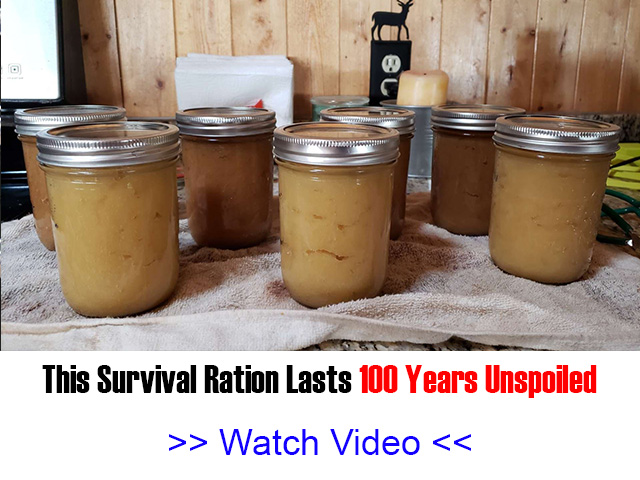In this post, you will find all you need to know about homestead exemption Texas. You will learn about the eligibility criteria, how to apply for the exemption, and the benefits it offers. Additionally, you will also find some frequently asked questions and their answers related to homestead exemption Texas.

What is a homestead exemption in texas?
In Texas, a homestead exemption is a legal benefit that can reduce the taxable value of a homeowner’s property, resulting in a lower property tax bill. The exemption is available to homeowners who use their property as their primary residence and meet certain eligibility criteria.
The homestead exemption can provide a significant reduction in property taxes. For example, the “General residence homestead exemption” can lower the appraised value of a property by up to $25,000 for school district taxes. There are also additional exemptions available for homeowners who are over 65, have a disability, or are veterans.
To apply for a homestead exemption, homeowners must file an application with their county appraisal district between January 1 and April 30 of the tax year. It’s important to note that each exemption has its own criteria and limitations.
Also read: HOW TO START HOMESTEADING WITH NO MONEY
What are the benefits of a homestead exemption in Texas?

The benefits of a homestead exemption in Texas are significant for homeowners. The most obvious benefit is a reduction in property taxes, which can result in significant savings. The exemption can lower the appraised value of a property, resulting in a lower tax bill for school district taxes and potentially other local taxes.
Another benefit of a homestead exemption in Texas is that it can provide some protection against creditors. In some cases, homesteads are exempt from certain types of liens or judgments, making it easier for homeowners to maintain ownership of their property.
Finally, a homestead exemption can provide some peace of mind for homeowners, knowing that they have legal protections and tax benefits associated with their primary residence. Homeowners should research and consult with local authorities to determine their eligibility and how to apply for a homestead exemption in Texas.
What property qualifies as a homestead in Texas?

In Texas, a homestead is defined as a property that serves as the primary residence of the homeowner. It can include a house, condominium, or manufactured home that sits on owned or leased land, as well as up to 20 acres of land for rural properties or 10 acres for urban properties.
To qualify as a homestead, the property must also be used for residential purposes and cannot be used primarily for commercial purposes. Additionally, the homeowner must have a legal interest in the property, either through ownership or a life estate.
It’s important to note that not all properties automatically qualify as homesteads in Texas. Homeowners must apply for a homestead exemption with their county appraisal district and meet certain eligibility criteria, see below.
Who is eligible for a homestead exemption?
To qualify for the “General residence homestead exemption” in Texas, you must meet these three requirements:
- Own your home (partial ownership counts)
- Use it as your principal residence
- Hold a Texas driver’s license or Texas-issued personal identification certificate that matches the address of your principal residence.
If you qualify for the “General residence homestead exemption” in Texas, you may also be eligible for additional exemptions based on your age, disability, or veteran status. Here are the three exemptions and their criteria:
- Over 65 exemption: This exemption is available to homeowners who are 65 years of age or older and have a homestead exemption. It provides an additional reduction in the appraised value of the property for school district taxes. To qualify, the homeowner must have turned 65 before January 1 of the tax year.
- Disability exemption: Homeowners who have a disability may qualify for this exemption, which provides an additional reduction in the appraised value of the property for school district taxes. To be eligible, the homeowner must have a disability that qualifies for disability benefits under Social Security or other disability programs.
- Veteran exemption: This exemption is available to veterans who have a homestead exemption and were honorably discharged from the military. It provides a reduction in the appraised value of the property for county taxes. The amount of the exemption depends on the veteran’s disability rating and whether they served during a wartime period.
How much does the homestead exemption save you in Texas?
The amount of money a homestead exemption can save you in Texas depends on several factors, including the value of your property and the specific exemption you qualify for. However, the savings can be substantial.
For example, the “General residence homestead exemption” can lower the appraised value of a property by up to $25,000 for school district taxes. This means that if your home is appraised at $200,000, the exemption could reduce its taxable value to $175,000, resulting in a lower tax bill.
How to file a homestead exemption in texas?
Filing for a homestead exemption in Texas is a simple process that can result in significant tax savings for homeowners. Homeowners must complete and submit an application to their county’s appraisal district office to file for the exemption.
The application for a homestead exemption can usually be found online or requested from the appraisal district office. Homeowners should complete the application accurately and provide any required documentation, such as proof of ownership or residency.
The deadline to file for a homestead exemption in Texas is typically April 30th of the year following the year in which the exemption is sought. Homeowners should research and consult with their local appraisal district office to determine how to file for a homestead exemption in Texas.
How do I qualify for a homestead exemption on an inherited home?
Inheriting a home can be an exciting and complicated process, especially when it comes to filing for a homestead exemption. To qualify for a homestead exemption on an inherited home in Texas, the property must be your primary residence. If you do not have a deed in your name, you can still qualify for the exemption by completing an affidavit in the homestead exemption application form, which can be found on the Texas Comptroller’s website. (Form 50-114-A)
In addition to the affidavit, several other documents must be submitted as proof of ownership. It’s important to review the instructions for Form 50-114 and be aware of any information about “Heir Property” that may impact your eligibility for the exemption.
When do I apply for a homestead exemption?
You should apply for a homestead exemption as soon as you meet the eligibility criteria, own the property and occupy it as your primary residence by January 1st of the tax year. The deadline for filing an application is April 30th of the same year.
However, it is recommended to apply as early as possible to ensure that the exemption is reflected on the first tax bill of the year. If you miss the deadline, you may still file a late application by the next year’s deadline and receive the exemption for the previous year only if you have good cause for not applying on time, such as medical or family emergencies.
Deferrals vs. Exemptions

In Texas, property owners have the option to either defer or exempt property taxes. Deferral allows the property owner to delay paying their property taxes until they no longer own or occupy the property. The deferred amount, along with interest, must be paid in full when the property is sold or the ownership changes.
Exemption, on the other hand, reduces the amount of taxes that the property owner is required to pay. Homestead exemption, for example, reduces the property’s taxable value by a certain amount, which in turn lowers the amount of property taxes owed. While deferral can provide short-term relief, exemption offers long-term benefits, as it reduces the overall tax burden for the homeowner.
The Home Doctor – Practical Medicine for Every Household
FAQ
How long does it take for homestead exemption to take effect in texas?
Once you have filed for a homestead exemption in Texas, it typically takes 8-12 weeks for the exemption to take effect. This is because the application must be reviewed and approved by the local county appraisal district. It is important to note that the exemption is not retroactive, so it will only apply to the current tax year and future tax years. Therefore, it is recommended that you file your application as soon as possible to maximize your savings.
When does the homestead exemption take effect in texas?
In Texas, the homestead exemption takes effect on January 1st of the year following your application submission. For example, if you submit your application in 2022, the exemption will take effect on January 1, 2023. It is important to note that if you miss the application deadline, your exemption will not take effect until the following year. Additionally, if you purchase a new home, you must apply for the exemption again in order for it to take effect on the new property.
What are the rules for homesteading in Texas?
Here are a few rules for homesteading in Texas:
- You must own and occupy the property as your primary residence.
- You must file an application for homestead exemption with the appropriate county appraisal district.
- You must have the property’s title or a beneficial interest in the property.
- You can only claim a homestead exemption on one property in Texas.
- The value of the homestead property cannot exceed certain limits.
- The property must be used for residential purposes and not for commercial purposes.
- The property owner must be a resident of Texas.
Please note that the information provided may not be exhaustive. It is advisable to consult with your local government or relevant authorities to ensure compliance with all applicable rules and laws.
Related:
If the owners are married, can they claim two homestead exemptions?
No, only one homestead exemption is allowed per family unit. In the case of married couples, they can only claim one homestead exemption for their primary residence, regardless of how many properties they own. However, if the property is owned separately by each spouse, each may claim a homestead exemption on their respective shares. It’s important to note that the exemption only applies to the primary residence, not vacation homes or rental properties.
What happens to the homestead exemption if I move away from the home?
If you move away from your home, your eligibility for the homestead exemption may be affected. If the property is no longer your primary residence, you may lose the exemption. It is important to notify the appraisal district of any change of address or change in use of the property to avoid any penalties or back taxes. However, if you move to a new home in Texas and make it your primary residence, you may be able to transfer the homestead exemption to your new property.
What happens to the homestead exemption if I rent my home?
If you rent out your home, you may lose your homestead exemption. This is because the homestead exemption is only available to homeowners who use the property as their primary residence. If you move out and rent the home to someone else, it is no longer your primary residence and therefore no longer qualifies for the exemption.
If my home is damaged or destroyed in a disaster, is my homestead exemption affected?
If your home is damaged or destroyed in a disaster, your homestead exemption is not affected as long as you rebuild or repair the home and resume using it as your primary residence within two years of the disaster. If you do not rebuild or repair your home within two years, your exemption may be removed for the tax year following the two-year period. In some cases, the appraisal district may grant an extension for up to one year.
Can i apply for texas homestead exemption online?
Yes, you can apply for the Texas Homestead Exemption online. You will need to visit the website of your local county appraisal district and complete the application online. The online application process is convenient and easy, and you will receive a confirmation email once your application is submitted.
How do I know if my homestead exemption was approved in Texas?
Once you submit your homestead exemption application in Texas, you can check its status online through your county’s appraisal district website. The website will typically provide information on the application’s approval or denial status. You can also contact your county’s appraisal district office directly for updates on your application status or to request more information.
What are some important links related to homestead exemptions in Texas?
Here are some important links for applying for homestead tax exemptions in Texas:
- Texas Comptroller of Public Accounts: Homestead Exemption Overview – https://comptroller.texas.gov/taxes/property-tax/exemptions/homestead.php
- Texas Comptroller of Public Accounts: Homestead Exemption Application Form – https://comptroller.texas.gov/forms/50-114.pdf
- Texas General Land Office: Homestead and Exemption Information – https://www.glo.texas.gov/cf/sfa/dfafacts.cfm?sysnum=12
- Texas Property Tax Code: Chapter 11, Homestead Exemptions – https://statutes.capitol.texas.gov/Docs/TX/htm/TX.11.htm
- Texas Secretary of State: Texas Constitution and Statutes – Property Code – https://statutes.capitol.texas.gov/Docs/PR/htm/PR.11.htm#11.13
Please note that these links are provided for informational purposes only and do not constitute legal or tax advice. It is important to consult with a qualified professional or government representative for guidance on individual circumstances.
Conclusion
In conclusion, taking advantage of the homestead exemption in Texas can provide significant savings on your property taxes. By understanding the eligibility criteria and following the application process, homeowners can benefit from this tax relief program. Remember to check with your local government for specific guidelines and additional information.
Was this post useful? Do you still have questions? Please let us know in the comments.
Want to learn how to build a solar tower and safe 65% on your power bill? Watch this video.










Leave a comment